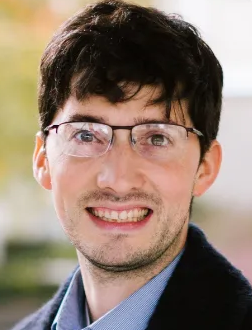 Congratulations to Sean McCarthy, who defended his doctoral dissertation on April 4th! His topic was "Language, Body, and World in Charles Taylor's Philosophy," and his director was Associate Professor Michael Rohlf of the School of Philosophy at Catholic University.
Congratulations to Sean McCarthy, who defended his doctoral dissertation on April 4th! His topic was "Language, Body, and World in Charles Taylor's Philosophy," and his director was Associate Professor Michael Rohlf of the School of Philosophy at Catholic University.
Sean McCarthy was born in Queens, NY and raised in New Fairfield, CT. He received his B.A. in Philosophy from Sacred Heart University in 2012 and his M.A. in philosophy from The Catholic University of America in 2018. For the last three years, he has taught Theology at Kennedy Catholic High School. He resides in Tacoma, WA with his wife and son.
Dissertation Abstract:
This dissertation aims to resolve a tension at the core of Charles Taylor's philosophical anthropology: how can Taylor hold both to what he calls his contact realism, according to which we are open to the layout of the world as it is, and to what he calls his constitutive philosophy of language, according to which human experience belongs to the linguistic dimension? Drawing from phenomenological and romantic sources, Taylor works out both positions in response to what he calls mediational epistemologies, according to which there is a sharp division between human experience and an independent world, and enframing conceptions of language, according to which language is reduced to a tool for organizing and communicating clear thoughts. These positions belong to a broader philosophical anthropology Taylor finds problematic.
This dissertation finds that Taylor does not resolve the tension inherent in his philosophical anthropology but that the resources for working out a resolution are evident in his work and in the secondary literature.
This dissertation claims that the resolution to this tension at the core of Taylor's philosophical anthropology can be symbolically captured with the reality of face-to-face conversation. Specifically, this dissertation argues that Taylor's grounding of language within embodiment and otherness serves to resolve the apparent tension. In doing so, a path is opened to ease the apparent tension obtaining between the mind and the world, the conceptual and the natural, the space of reasons and the space of causes.
This dissertation lastly argues that Taylor's tentative exploration of a re-enchantment of nature commits him to a more robust metaphysics that is necessary for resolving the central tension considered in this dissertation.
